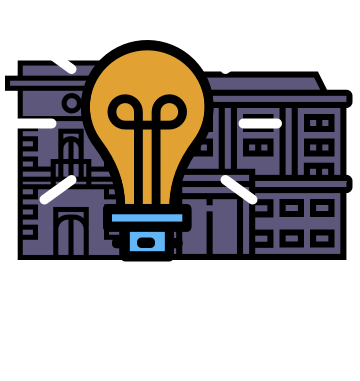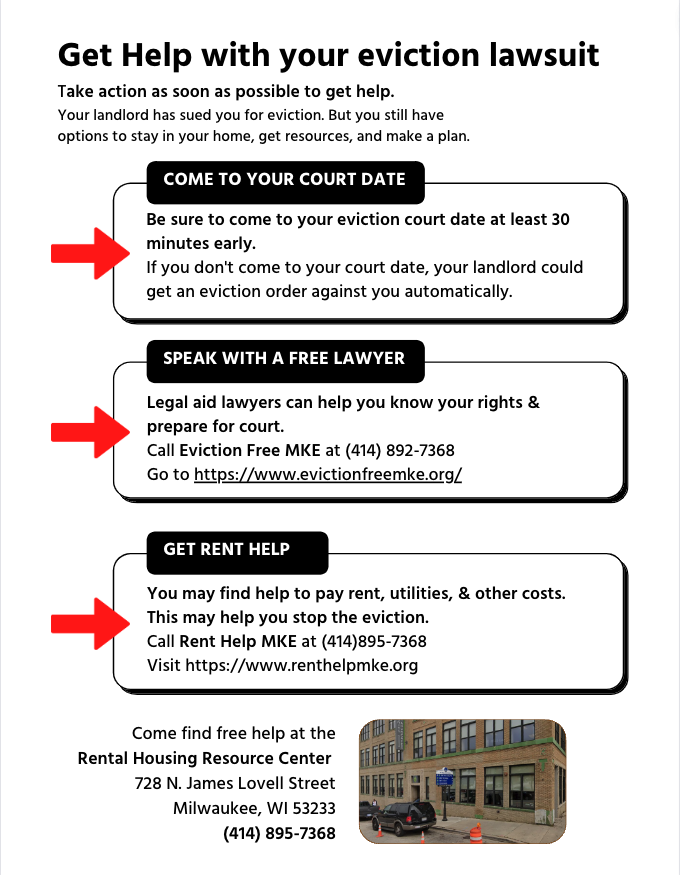Basic Information
Program Name
Eviction Prevention Pilots
Short Description
The City of Syracuse Department of Neighborhood and Business Development invested Emergency Solutions Grants (ESG) and Community Development Block Grant funding into two eviction prevention programs.
One program was with the Syracuse Housing Authority (SHA) and Volunteer Lawyers Project. The other program was with Clinton Plaza, a private subsidized housing complex and a not-for-profit, Catholic Charities, who offered early intervention housing case management services for tenants.
The pilot with the Syracuse Housing Authority funded two case managers to work with tenants who were late on their rent payments, connecting them with needed support services including potential sources of emergency financial assistance. SHA also redesigned their outreach process with property managers to ensure more successful outreach to tenants.
Syracuse also helped support similar programming in a private housing complex, Clinton Plaza. When tenants fall behind in rent at Clinton Plaza, they are referred to a case manager from Catholic Charities to help connect them to relevant services.
Location
Syracuse, New York
Duration
1/1/18-4/30/19
Funding
ESG Supplemental funding was given to The SHA/VLP Project amounting to $167,500The Catholic Charities/Clinton Plaza Project received CDBG funds amounting to approximately $80,000
Size (number of beneficiaries)
SHA: In 2017, the SHA filed 834 evictions, of which, 60 resulted in a tenant being evicted. In 2018, that number of filings dropped to 203, where only 27 tenants were evicted, resulting in a 75% reduction of eviction filings.
Clinton Plaza: Estimated 69 evictions were prevented and 83 households received case management services from Commonwealth Catholic Charities.
Stakeholders
Who designed and set up the program?
In 2018, the City of Syracuse Department of Neighborhood and Business Development led this initiative. Housing stability is one of Syracuse’s Mayoral objectives.
Who runs and manages the program?
City of Syracuse Department of Neighborhood and Business Development offers technical assistance and monitors the two pilot programs to ensure compliance with HUD regulations and contracting with the funded agencies:
- Catholic Charities,
- Syracuse Housing Authority and
- Volunteer Lawyers Project.
Who funds the program? How much funding has been received, and what is the sustainability plan for the funding?
The original funding came from the city but Clinton Plaza found the program to be so sustainable that they are either going to contract with Catholic Charities for case management services or hire their own case manager. The program is still operational.
Intended Beneficiaries: Who does the program target?
The program targeted vulnerable tenant populations who were either already late on rent payments in public housing or lived in a private building complex with historically high eviction rates.
Program Details
How does the program work? What are the typical paths of action that the beneficiary + the service-provider take?
For SHA:
Once a tenant falls behind on rent, the process goes as follows:
- The property manager alerts Resident Support Services (RSS) at SHA that the tenant missed their rent payment.
- The RSS Coordinator meets with property managers and collection staff to identify households who are at risk of eviction for nonpayment of rent, housekeeping deficiencies or other serious lease compliance issues.
- Resident Support Services calls the resident first.
If they can’t connect by phone, a letter is sent out three different times to attempt to get the resident to reach out.
If none of the letters work, case managers with Resident Support Services go and knock on the door. - Once Resident Support Services connects with the tenant, they can work with them to determine why they missed rent and what support services they need.
They can make sure that the resident’s rent is calculated correctly or change it if the resident had a change in income. - They can connect them with the Volunteer Lawyers Project if the tenant is in need of legal services.
- And they set up an affordable payment plan to pay back their owed rent.
For Churchill Plaza:
- When a tenant fails to pay their rent and the property manager cannot assist, a referral to meet with the Catholic Charities case manager is sent with the late notice.
- The tenant is offered the opportunity to meet with the case manager during set visiting hours, or they can set up an appointment outside of those hours as necessary.
- Catholic Charities works with the tenant to connect them to necessary services such as getting their pet certified as a service animal, setting them up with a cleaning service, making rent adjustments if there was a change in income, and setting up payment plans for missed rent. In the past, tenants were too often evicted due to a disconnect with such services.
- If the case does have to go to an eviction or the tenant is in need of legal services, the tenant is referred to Legal Services of CNY so they can receive free representation. This has often led to the eviction case being able to be settled before it even gets to court.
What assets can be shared for others to use?
None at this time.
Evidence Base
What are the plans for monitoring and evaluation?
No formal tools of assessment were used but the programs tracked number of evictions compared to preceding year using Eviction Court data. The individual programs internally tracked number of referrals and outcomes of cases served to determine what lead up to possible eviction, what services were received and the final outcome.
Have any evaluations been conducted so far?
SHA: Through this program, in 2018, the Housing Authority saved at least $116,119 in eviction filings and lost rent and prevented at least thirty families from having to leave their homes.
Clinton Plaza: Over twelve months, the program prevented 69 evictions from occurring, saving the property manager approximately $219,752 in legal fees, missed rent, and other costs associated with evictions.
Clinton Plaza will continue to implement the program without city funding next year, itself financing the salaries of two case managers because it found the program to be so effective.
Contact and Follow-Up Info
Program Website
None at this time.
Documentation + Links
https://docs.google.com/document/d/1pA2KFVpWQOztn5fxENcBAD06JLy76hcZ/edit?dls=true
This blog post from the City of Syracuse’s Innovation Team on housing stability initiatives to reduce evictions.
Point of Contact for more information
Susan McMahon, ESG Program Administrator,
smcmahon@syrgov.net



